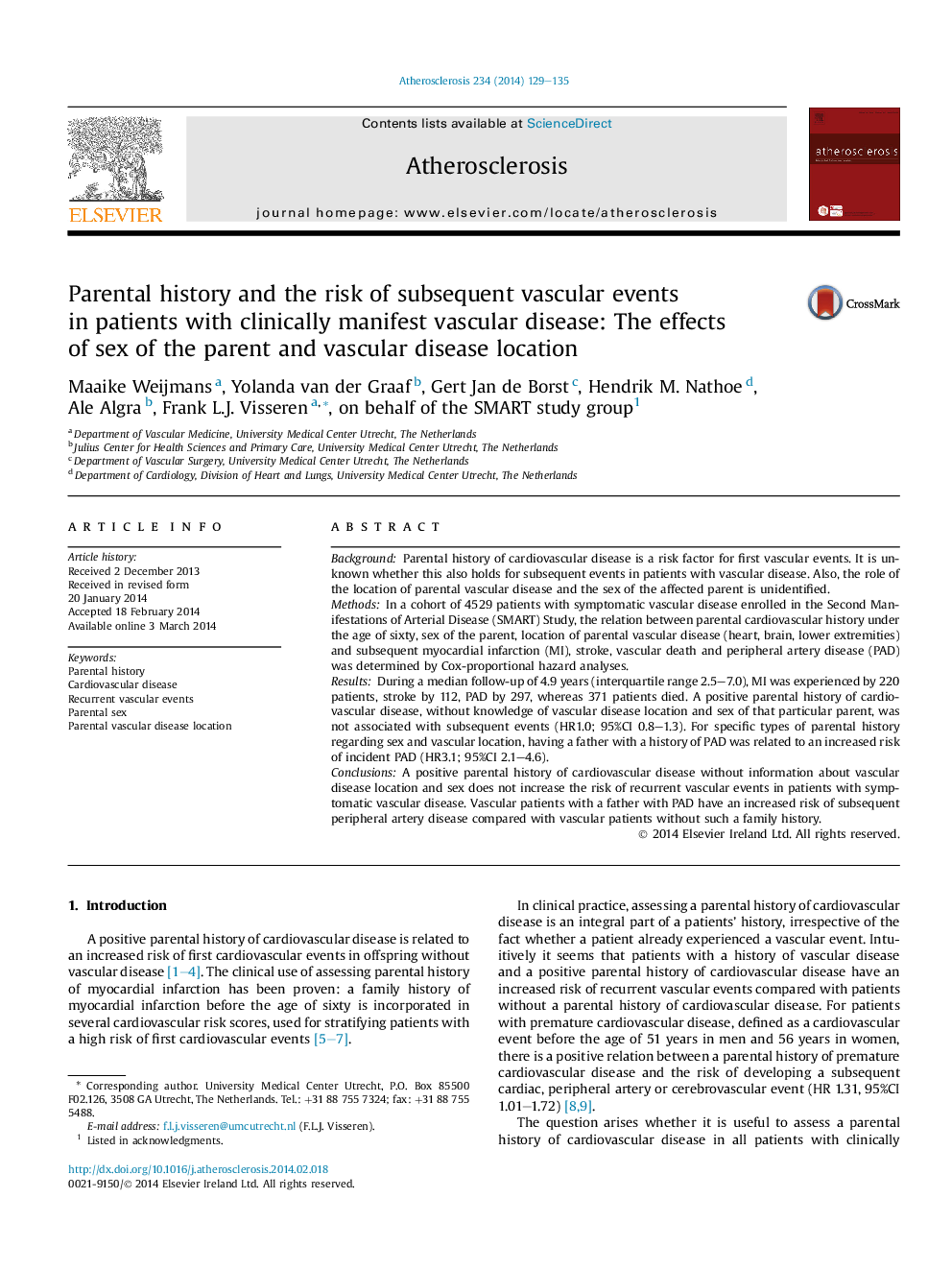| کد مقاله | کد نشریه | سال انتشار | مقاله انگلیسی | نسخه تمام متن |
|---|---|---|---|---|
| 5946531 | 1172359 | 2014 | 7 صفحه PDF | دانلود رایگان |
- The relation between PH of CVD and new vascular events was determined in 4529 patients with CVD.
- Also the influence of parental sex and parental vascular disease location was assessed.
- Parental history of CVD in general was not associated with subsequent vascular events.
- Paternal history of PAD was related to an increased risk of incident PAD.
BackgroundParental history of cardiovascular disease is a risk factor for first vascular events. It is unknown whether this also holds for subsequent events in patients with vascular disease. Also, the role of the location of parental vascular disease and the sex of the affected parent is unidentified.MethodsIn a cohort of 4529 patients with symptomatic vascular disease enrolled in the Second Manifestations of Arterial Disease (SMART) Study, the relation between parental cardiovascular history under the age of sixty, sex of the parent, location of parental vascular disease (heart, brain, lower extremities) and subsequent myocardial infarction (MI), stroke, vascular death and peripheral artery disease (PAD) was determined by Cox-proportional hazard analyses.ResultsDuring a median follow-up of 4.9 years (interquartile range 2.5-7.0), MI was experienced by 220 patients, stroke by 112, PAD by 297, whereas 371 patients died. A positive parental history of cardiovascular disease, without knowledge of vascular disease location and sex of that particular parent, was not associated with subsequent events (HR1.0; 95%CI 0.8-1.3). For specific types of parental history regarding sex and vascular location, having a father with a history of PAD was related to an increased risk of incident PAD (HR3.1; 95%CI 2.1-4.6).ConclusionsA positive parental history of cardiovascular disease without information about vascular disease location and sex does not increase the risk of recurrent vascular events in patients with symptomatic vascular disease. Vascular patients with a father with PAD have an increased risk of subsequent peripheral artery disease compared with vascular patients without such a family history.
Journal: Atherosclerosis - Volume 234, Issue 1, May 2014, Pages 129-135
